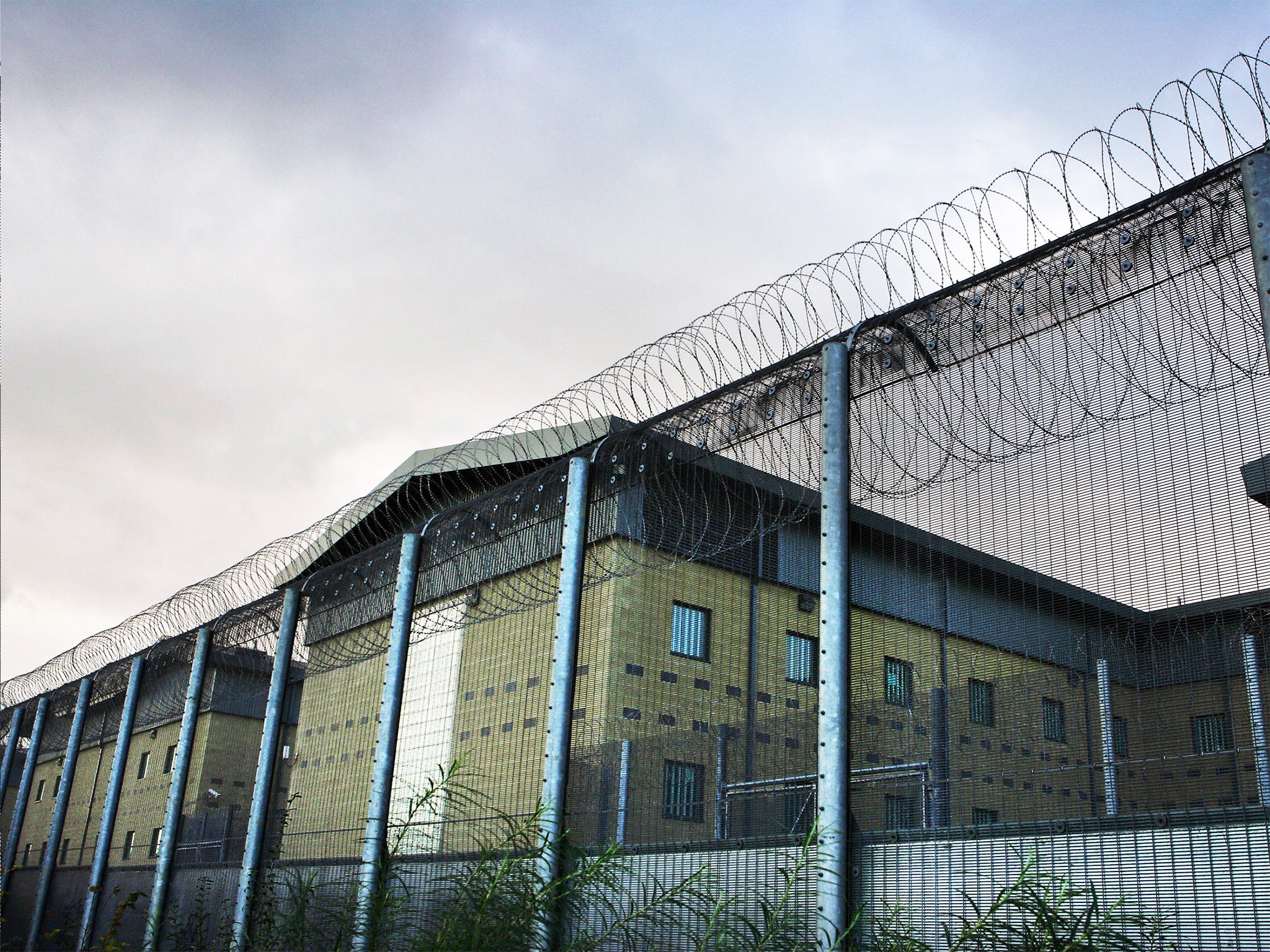Hunger strikes, rising levels of self-harm and huge profits: business is booming for private prison companies in the UK
A company running detention centres for refugees and asylum seekers is making millions amid claims of deteriorating conditions

When American entrepreneurs were busy promoting private prisons, one of them described the business model as “like a hotel with a guaranteed occupancy”. Unfortunately, that message hasn't been lost on this side of the Atlantic either.
Running Britain's immigration detention centres, where thousands of migrants are locked up without any time limit, pending possible deportation, is equally lucrative. Mitie Care and Custody, the company that runs three such detention facilities in the UK, has just recorded a six fold increase in its annual profits. The firm cashed in over £2 million for the last financial year.
Mitie says the jump in profits came after it took over the notorious Harmondsworth and Colnbrook detention centres outside Heathrow airport in September 2014. The Home Office awarded Mitie an eight year contract worth £180 million to run these centres, which used to be run by rival outsourcing giants Serco and the Geo Group.
This new contract has proved highly profitable for Mitie, but comes amid protests over conditions amid claims of decreasing staff morale at those centres. Mitie's newly released profit figures run until the end of March 2015. In that month, both centres faced open revolt among detainees who staged sit-ins and hunger strikes, angry at worsening conditions. An alarming number of detainees had been self-harming seriously enough to require medical attention. There were 70 such incidents at Harmondsworth in the first quarter of 2015, four times the number than in the previous quarter.
Secret filming shot in the months after Mitie took charge showed one disgruntled guard saying that the new management had “fucked this place up, they fucked it up”, with staff stretched to breaking point. The new centre manager, Paul Morrison, was caught on camera telling detainees they would be locked in their cells for two hours longer each night under Mitie's “more efficient” contract, which reduced staff night-shifts and enabled more staff to be on duty during the day. When challenged by detainees about his motives, Morrison insisted this change was not designed to boost profits. Nevertheless, the company's latest profit figures can only reassure Morrison, as financial records reveal that he holds shares in Mitie Care and Custody.
The Independent Monitoring Board (IMB), which visits the centres on a regular basis, also raised concerns after seeing the first four months of Mitie's tenure. In their 2014 annual report, they said that although there had been "some positive organisational changes introduced by Mitie, such as new legal visits rooms and a welfare suite", Harmondsworth was “in large parts a depressing, dirty place and in some cases has a destructive effect on the welfare of detainees”. They highlighted “the poor maintenance of the centre, detaining vulnerable detainees in unsuitable conditions, the continued detention of those 'unfit to be detained' and the complaints process”.
Although things were far from perfect under the old contractor, the Geo Group, inspectors said that “Some procedures and systems that worked under Geo (albeit to a substandard level) are currently suffering under Mitie as a result of staffing and organisational changes.”
And the criticisms didn't stop there. “Maintenance issues, inherited by Geo, despite being addressed by Mitie, remain outstanding at the time of writing," the report states. "Staffing levels do not seem adequate to meet the needs of detainees. Staff morale is low. This adversely affects the welfare of detainees. The IMB continued to receive complaints about staff behaviour.”
They concluded that “an increasing number of problems have related to the contractor where the changing of contracts has left gaps in service provision for the detainees.”
And over at Colnbrook, the inspectors weren't that impressed either. The IMB's annual report on the prison, which it said was "on the whole, a positive one", also said that facilities for physically disabled detainees were “inadequate”, and that “the change in contractor [from Serco to Mitie] has resulted in significant staffing issues… staff are overstretched and have less time available to interface with detainees, resulting in an increasing level of dissatisfaction amongst the detainees.” Tellingly, 43 per cent of complaints about Colnbrook to the IMB in 2014 were made in the last four months of the year, after the contract changed hands.
Inspectors also “observed a general deterioration in the cleanliness of the centre, activities not being operated as frequently as before the change in contract, and staff morale being low. It is not apparent whether these issues are teething problems associated with the significant changes inherent in a change of contractor or whether the staffing profile envisaged in the new contract is inadequate.” But the inspectors couldn't check this out, because they “have not been given sight of the new contract on the grounds that it is commercially sensitive.”
Mitie "Care and Custody" is undeterred. The company's CEO said the company was “trying to make the environment the best it can be” and had a plan in place with the Home Office to achieve this. Its director, Colin Dobell, has said that the firm “continues to be active in bidding and developing opportunities in the central government justice outsourcing sector and expects to be successful in securing new business in the year.”
Although Dobell sees difficulties ahead “as the new government implements its next round of budgetary cuts”, he has said that he expects the firm to “respond positively to the challenges and opportunities this creates”. Or, in other words, the Government's austerity measures, combined with increased hostility towards refugees, is likely to create more profitable business "opportunities" for Mitie.
Join our commenting forum
Join thought-provoking conversations, follow other Independent readers and see their replies
Comments